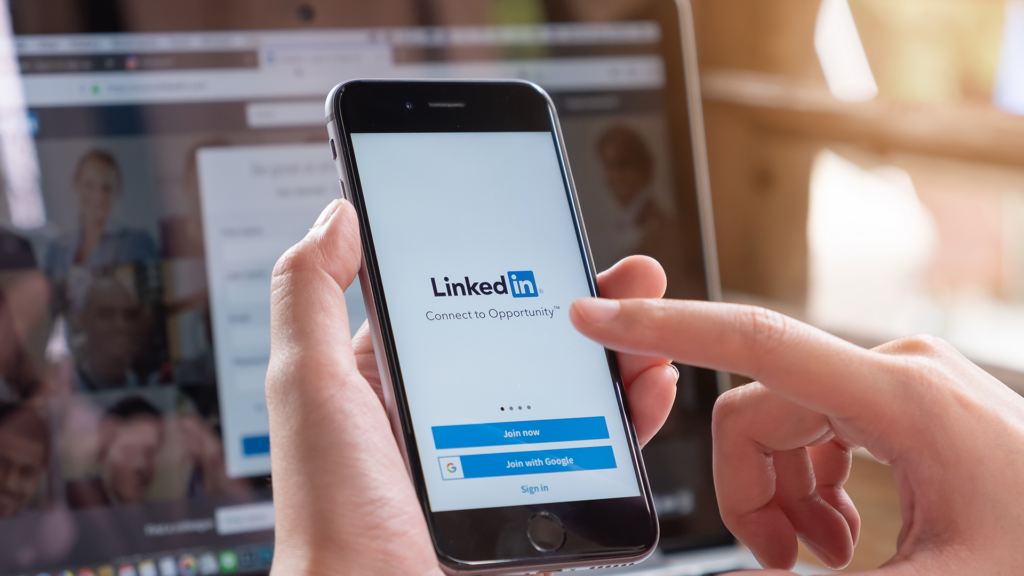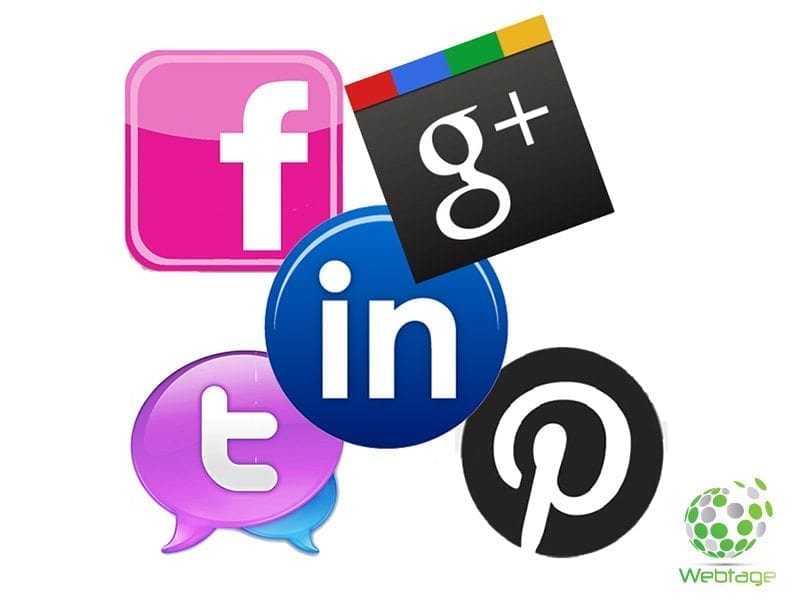
LinkedIn has come a long way from being just a portal for job seekers. LinkedIn started as a job search engine. But it has now grown into a powerful and integral tool for B2B marketing.
B2B marketing or Business-to-Business marketing, like the name suggests, refers to marketing products and services to another business, instead of consumers.
Why Is LinkedIn A Crucial Platform for B2B Marketing?
Let’s explore LinkedIn marketing for B2B businesses and what makes it the perfect social platform for B2B marketing.
We explore LinkedIn marketing for B2B businesses, and also share our top reasons why you must consider LinkedIn for your B2B marketing.
- LinkedIn Is A Gold Mine Of Business Professionals
If your B2B company is not on LinkedIn, you’re missing out on enormous opportunities.
What makes LinkedIn different from the other social platforms is the context. While platforms like Facebook, Instagram, and Twitter have social leanings towards family, friends, and casual connections, LinkedIn is built for business connections only.
Consider this! There are 750+ million users on LinkedIn across 200 countries at the rate of 3 new members every second and counting.
As per LinkedIn, 71% of professionals use the platform to convey their business decisions. That should convince you how active business professionals are on the platform, promoting their brands.
It is smart marketing to meet up with other businesses on the platform where they are the most active. If you’re a B2B company, LinkedIn is the place to be.
So, if you’re not on LinkedIn yet, we strongly suggest you set up your company page at the earliest. You could meet your next business client, partner, employees, influencers and whoever you want to target for your business.
- Social Media For B2B Is Unlike B2C companies
Unlike B2C or Business-to-Consumer businesses that are aimed at attracting a wider audience of consumers, B2B businesses have a niche audience of other businesses.
A typical B2C marketing requires a lot of visibility, where the emphasis is geared towards the awareness phase of the buyer’s journey. We measure B2C marketing success more in terms of metrics, such as followers, likes, comments, shares, etc.
However, B2B marketing runs deeper than just being known to your target audience. There is emphasis on not just brand building, but also on business networking because:
- B2B audience spans multiple departments: strategic, financial and operational decision
- B2B sales cycles are much longer, so regular communication to provide value for decision makers is critical.
Building a powerful brand gives your B2B business a competitive advantage. Brand building should be a strategic priority to speed up business growth.
B2B Marketing should be distinct and authentic since there is a demand for purpose-driven brands that fosters trust in the long run among the target audience. Any brand that’s inauthentic and skewed more towards commercialization instead of purpose may not sustain for long.
Competition is out, and collaboration is in. Brands that are authentic, purposeful, and collaborative are on the right track.
However, this is easier than done, as most B2B businesses today are blindly following the B2C marketing template. This lack of creativity is damaging to your B2B brand’s success. At Webtage, our approach is to balance brand building and business networking. We carve our clients’ distinct brand personality, and convey it creatively to their audience, building trust, empathy, differentiation, and loyalty.
LinkedIn provides many useful business networking and lead generation tools, including LinkedIn Sales Navigator and LinkedIn Advertising that allow for deep targeting of your audience for best business networking opportunities.
When you’re on LinkedIn, think of the relationships as less as connections and more like collaborative business partnerships. LinkedIn B2B marketing is about building long-lasting partnerships with your relevant target customers.
- LinkedIn Is The Most Effective Platform For B2B Marketing
There are several substantial reasons LinkedIn is so popular with B2B marketers.
LinkedIn is an excellent place for businesses to promote their products and services and gain relevant business leads. Research has backed the claim of LinkedIn being an effective lead generation platform. An overwhelming 97% of business leads from social media platforms come from LinkedIn.
Clearly, LinkedIn out beats other social platforms and works for B2B lead generation. When you dig further and look at the reasons backed by research findings, you’ll find that it all makes perfect sense.
It’s highly likely that you will be in direct contact with high-level decision-makers of the companies you are targeting on LinkedIn. LinkedIn B2B marketing is a faster way to reach your targeted audiences and gain high-quality leads.
Another reason that makes LinkedIn a popular choice for B2B marketers is that it is viewed as a trusted platform.
- LinkedIn B2B Marketing Helps In Building Thought Leadership
As per a recent study by the Content Marketing Institute,
- 97% of B2B marketers use LinkedIn for their content marketing.
- 78% of B2B marketers say LinkedIn is an effective tool for content marketing.
So, LinkedIn is not just a networking place for business professionals, it’s also an active community that’s sharing relevant content. Consider these statistics by LinkedIn internal data:
- There are nine billion content impressions on LinkedIn each week (LinkedIn study).
- Around 45% of LinkedIn article readers are in upper-level positions, such as managers, VPs, Directors, and C-level positions.
So, as a business brand, you can build thought leadership with your LinkedIn short form posts, videos, and long form articles. There are high chances that the decision makers of your target audience will read them, and even approach you if they are original, high-quality, and well-written.
- LinkedIn is A B2B Centric Platform
While this might come across as stating the obvious, what most people don’t realize is how LinkedIn is built for B2B marketing. Whether it’s building business relationships, developing your brand, or doing business, LinkedIn is the place to be.
We can use precise and virtually limitless targeting tools and options provided by LinkedIn to reach your audiences. We also use strategic testing to determine which of your audiences and targeting parameter combinations can generate the optimal results.
There are several strategic actions we can take to improve your LinkedIn B2B marketing efforts. For example, we add the LinkedIn Insight Tag to our client’s website so that we can re-target the website visitors with relevant content in the future.
We Can Help You Gain Leads With Our LinkedIn B2B2 Marketing Services
LinkedIn is the platform to be on if you have a B2B business. Whether it is to attract relevant, high-quality leads, influencers to promote your products and services, or employees to join your workforce, LinkedIn is the strong dark horse of social media platforms.
Our article has you covered all the benefits that LinkedIn offers for your B2B business. If you want to know more about how we can help leverage LinkedIn for your business, get in touch with Best Marketing Agency in Naperville & Chicago area.







